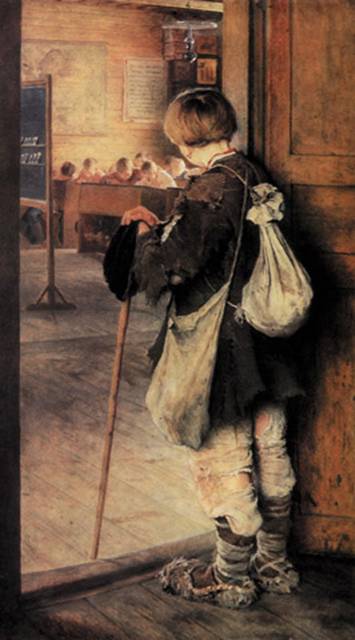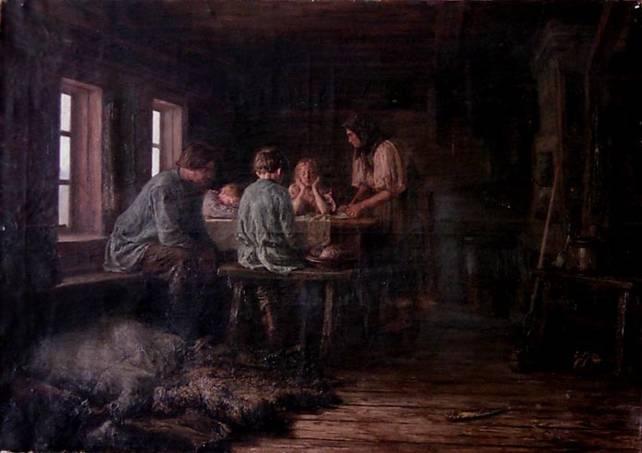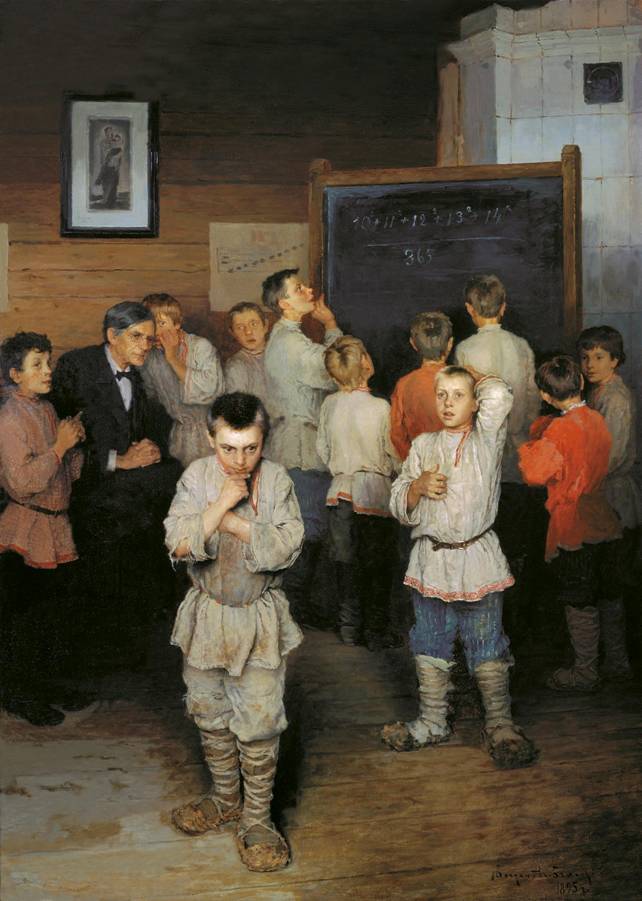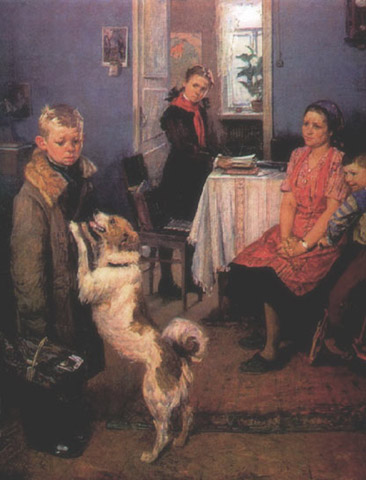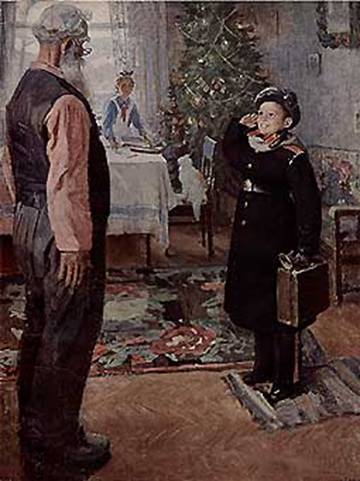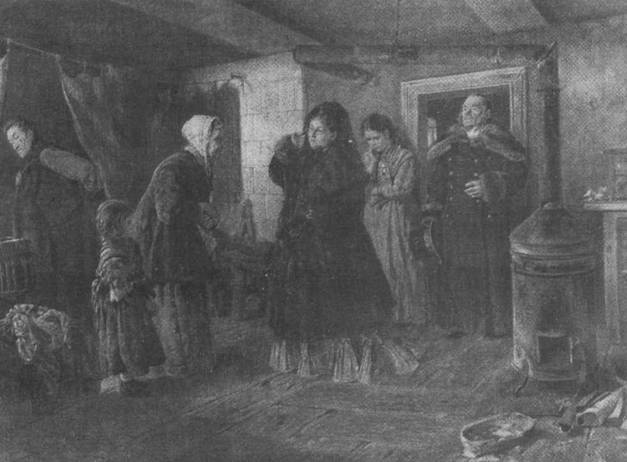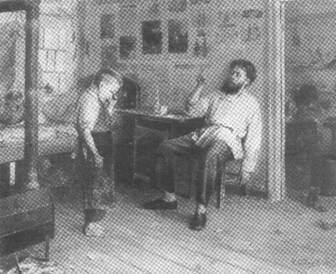simply—
просто
wonderful—
чудесный
beastly
weather
– ужасная
погода
terrible—
ужасный
it
is raining cats and dogs
– Дождь
льёт,
как
из
ведра.
there
is
nо
sign—
нет никакого признака
to
clear up—
проясниться
lovely
weather—
чудесная
погода
it
will
last—
простоит (о погоде)
the
weather has changed
– погода
переменилась
what
can you expect?-
а
чего
можно
ожидать?
in
our parts—
в
наших
краях
it
has been snowing heavily
– идёт
сильный
снег
everything
is covered—
всё
покрыто
a
thick layer of snow
– толстый
слой
снега
if
it does not melt—
если
не
растает
I
am thick and tired of this rain—
Мне
ужасно
надоел
этот
дождь.
wet
to the skin—
промок
до
костей
wet
through
– промок
насквозь
heavy
clouds—
тяжёлые
тучи
it’s
going to rain-
собирается
дождь
a
thunderstorm—
гроза
to
run for shelter—
бежать
в
укрытие
it’s
pouring—
льёт как из ведра
a
shower—
ливень
a
flash of lightning
– вспышка
молнии
-
Practice reading the following bits of conversation. Learn them by heart.
1)-
Fine day today, isn’t it?
—
Yes, simply wonderful.
2)-
What beastly weather we are having!
—
Yes, it’s terrible.
3)-
It has been raining cats and dogs since morning!
—
Yes, and there is no sign of the rain stopping.
4)-
Will it clear up, do you think?
—
Who knows? You never can tell…
5)-
What lovely weather we are having!
—
Yes, indeed. I hope it will last.
6)-
The morning was so fine, and look how the weather has changed.
—
Yes, it’s very unpleasant. But what can you expect? The weather in
pur parts is so changeable.
7)-
It has been snowing heavily since morning. Look, everything is
covered with a thick layer of snow.
—
Yes, indeed! If it doesn’t melt, we can go skiing tomorrow.
8)-
I am thick and tired of this rain! I am already wet to the skin.
—
Well, what can you expect? It’s always like this in this season.
9)
-Look at these heavy clouds over there. I think it’s going to
rain.
—
Oh, there is a thunderstorm coming! Look, what a flash of lightning!
Come, let’s run for the shelter before we get wet through.
10)-
Is it still raining?
—
Oh, it’s simply pouring – a real shower.
-
Practice reading the following words, word combinations and sentences. Learn them by heart.
nature
awakens
– природа пробуждается
it
grows
warmer
– становится теплее
buds—
почки
shoot
out
new
leaves
– выпускают новые листочки
meadows
— луга
flowers
begin to blossom
– цветы
распускаются
farmers
till the soil—
фермеры
пашут
землю
sow
( sowed, sown) the seeds—
сеять
семена
a
nightingale—
соловей
a
swallow —
ласточка
migrant
birds
– перелётные
птицы
а
nest
— гнездо
lay
and hatch their eggs
– кладут
яйца
и
высиживают
птенцов
corn
fields
– поля,
засеянные
злаками
а
cornflower
— василёк
а
poppy
– мак
Соседние файлы в предмете [НЕСОРТИРОВАННОЕ]
- #
- #
- #
- #
- #
- #
- #
- #
- #
- #
- #
Contents
PART I. Travel
1. Visiting a Travel Agent…………………………………………………………………4
2. Making a Plane Reservation…………………………………………………….….…..5
3. Buying a Plane Ticket…………………………………………………………….…….7
5. Making a Hotel Reservation ………………………………………………………..….9
6. Getting a Passport …………………………………………………………………….10
7. Luggage Limits………………………………………………………………………..12
8. Carry-on Luggage……………………………………………………………………..14
9. Dropping Off at the Airport …………………………………………………………..15
10. Picking Up at the Airport ……………………………………………………………17
11. Going through the Custom……………………………………………………………19
12. Talking to a Curbside Agent…………………………………………………………20
13. Talking to a Flight Attendant …..…………….………………………………….…..22
14. Talking to a Seatmate...………………………………………………………………24
15. Ordering Food and Drink …………………………………………………………….25
16. Missing Connecting Flight………………………………………………….…….….27
17. Ground Transportation.………………………………………………………….……29
18. Complaining about a Tour ……………………………………………………….…..30
19. Sightseeing.…………………………..……………………………………………….32
20. Shopping for Souvenirs………………………………..……………………….…….34
21. Shuttle Bus at the Airport ……………………………………………………….…..35
PART II. At a Hotel
1. Calling to Get a Reservation.……………………………………………………..……37
2. Checking into the Hotel ………………………………………………………….……40
3. Requesting a Wake-Up Call……………………………………………………….…..43
4. Asking the Concierge for Sightseeing Advice ………..……………………….….….45
5. Asking the Concierge for Restaurant Advice …………………………………………48
6. Talking to Room Service …………………………………………………………….51
7. Checking the Apartment for Anything Damaged……………………………………..53
8. Asking about Safety Features ……………………….…….……………………….…55
9. Asking about the Hotel Gym …………………………………..…….………….…….56
10. Asking for More Amenities …………………………………………………………59
11. Asking Where to Make a Copy ……………………………………….……………..61
12. Talking to a Curbside Agent …………………………………………………………62
13. Talking to a Flight Attendant ………………………………………………………..64
14. Talking to a Seatmate...………………………………………………………………67
15. Ordering Food and Drink ……………………………………………………………69
16. Missing Connecting Flight……………………………………………………………71
17. Ground Transportation.…………………………………………………………….…73
18. Complaining about a Tour ……………………………………………………………75
19. Sightseeing.…………………………..………………………………………………77
20. Shopping for Souvenirs………………………………..……………………….…….79
21. Shuttle Bus at the Airport ………………………………….………………………..81
PART I. Travel
Visiting a Travel Agent
Exercise 1 Practice reading the following words and word combinations. Be sure in their pronunciation. Learn them by heart.
| a brochure | рекламный буклет |
| to make reservation | забронировать место, сделать заказ |
| to enjoy a tropical climate | наслаждаться тропическим климатом |
| you might like | вам могло бы понравиться |
| to be open to suggestions | быть открытым для предложений |
| at this point | в настоящий момент, на данный момент |
| a cooler climate | более прохладный климат |
| a destination | место назначения, направление |
| right now | прямо сейчас, сейчас, сейчас же |
| а budget | бюджет |
| Take your time choosing a destination. | Не торопитесь, выбирая направление. |
| to narrow smth. down | выбирать ч-л., определиться с ч-л. |
| а temperate climate | умеренный климат |
| Why don’t you take a look at… | Почему бы Вам не взглянуть на … |
| to make up your mind | принять решение |
Exercise 2 Learn the following dialogues
A: I need help planning my vacation.
B: Sure, where would you like to go?
A: I haven’t decided where to go yet.
B: Do you enjoy warm or cold climates?
A: I am thinking that I might enjoy a tropical climate.
B: I have some brochures here that you might like to look at.
A: These look great!
B: Do you know how much you want to spend on this vacation?
A: I have about a thousand dollars to spend on this trip.
B: Well, take these brochures, and get back to me when you want to make your reservations.
A: Could you figure out with vacation plans?
B: Do you know where you will be traveling?
A: I am open to suggestions at this point.
B: Do you want to travel to a tropical climate, or would you like to go somewhere with a cooler climate?
A: I would like to travel to a cooler destination.
B: I can give you some brochures that could give you some ideas.
A: I will look at them right now.
B: How much money is in your budget for this trip?
A: I think that I can spend about two hundred dollars a day.
B: Take your time choosing a destination and, when you’ve narrowed it down, I’ll be happy to help you make a reservation.
A: I was wondering if you would be able to help me with vacation plans.
B: Have you chosen your destination?
A: I don’t know where I want to go yet.
B: Do you enjoy warm weather, or are you looking forward to a cooler vacation?
A: A nice temperate climate would be best for me.
B: Why don’t you take a look at these brochures that might help you make up your mind?
A: This place looks nice.
B: Have you thought about what you would like to spend on this vacation?
A: I just got a bonus and can spend about three thousand dollars total.
B: I’ll be happy to help you make a reservation whenever you decide upon a destination.
Exercise 3 Render the contents of the dialogue in indirect speech with the use of the highlighted words.
Exercise 4 Give all possible answers to the given phrases:
1)– Where would you like to go?
–……………………………………..
2) – How much money is in your budget for this trip?
–…………………………….
3) – What kind of climate do you enjoy?
–…………………………….
Making a Plane Reservation
Exercise 1 Practice reading the following words and word combinations. Be sure in their pronunciation. Learn them by heart.
| a plane reservation, an airline reservation | бронирование билета на самолет |
| I would rather leave from… | Я предпочел бы вылететь из… |
| to have a preference | отдавать предпочтение |
| to book on a flight | забранировать билеты на рейс |
| a morning return flight | утренний обратный рейс |
| an option of departing | вариант вылета / отправления |
| at either time | в любое время |
| to be preferable for smb. | быть предпочтительным для к-л. |
| either morning or afternoon | утром или вечером |
Exercise 2 Learn the following dialogues
A: Could you help me make a plane reservation?
B: I would be happy to help you. Where do youplan on going?
A: I am going to go to Hawaii.
B: For that destination, you may leave from Los Angeles or Burbank Airport. Which would you prefer?
A: I think that I would rather leave from Los Angeles Airport.
B: Would you prefer a morning or afternoon departure?
A: I need to leave in the morning.
B: Fine. On your return flight, do you have a preference as to morning or afternoon?
A: I would prefer to return in the afternoon.
B: I have booked you on your flight at a great rate. Here are your tickets.
A: I need to make a plane reservation.
B: That is what I am here for. What is your destination?
A: I will be traveling to Aspen, Colorado.
B: Would you prefer to leave from Los Angeles or Burbank Airport?
A: Burbank Airport would be best for me.
B: You can leave in the morning of afternoon from that airport. Do you have a preference?
A: I can only take a flight that leaves in the afternoon.
B: I can book that for you right now. When you return, would you prefer morning or afternoon?
A: I think that I would like a morning return flight better.
B: I was able to book your flight, and I will print your tickets right now. Have a great trip!
A: I am planning a trip and need help making my airline reservation.
B: Sure. Where are you traveling to on your trip?
A: I will be vacationing in Oregon.
B: You have an option of departing from Los Angeles or Burbank Airport. What is your preference?
A: I live closer to Los Angeles Airport, so that would be the best choice.
B: Does it matter to you if you leave in the morning or afternoon?
A: I can leave at either time.
B: I’ll put you on a morning flight. Is a morning or afternoon return flight preferable for you?
A: Either morning or afternoon would work for me.
B: I’ll give you an afternoon flight. Here are your tickets.
Exercise 3 Render the contents of the dialogue in indirect speech with the use of the highlighted words.
Exercise 4 Give all possible answers to the given phrases:
1)– Where are you traveling to on your trip?
–……………………………………..
2) – Would you prefer a morning or afternoon departure?
–…………………………….
3) – What airport would you prefer to leave from?
–…………………………….
Exercise 3 Render the contents of the dialogue in indirect speech with the use of the highlighted words.
Exercise 4 Give all possible answers to the given phrases:
1)– How do you book airline tickets online?
–……………………………………..
2) – What do I need to know to book a flight online?
– ……………………………
3) – How do you get the cheapest rate?
–…………………………….
4) – Can you choose which airline you fly with?
–…………………………….
Buying a Plane Ticket
Exercise 1 Practice reading the following words and word combinations. Be sure in their pronunciation. Learn them by heart.
| to fly out of / to leave from | вылетать из … |
| I have you booked on a flight | я забронировала вас на рейс |
| to fit the schedule | соответствовать расписанию |
| to arrive by mail | прибыть по почте |
| a travel date | дата поездки |
| the least expensive flight | наименее дорогой рейс |
Exercise 3 Render the contents of the dialogue in indirect speech with the use of the highlighted words.
Exercise 4 Give all possible answers to the given phrases:
1)– Where are you traveling to?
–……………………………………..
2) – What is your travel date?
– ……………………………
3) – What time of day would you prefer to fly?
–…………………………….
Making a Hotel Reservation
Exercise 3 Render the contents of the dialogue in indirect speech with the use of the highlighted words.
Exercise 4 Give all possible answers to the given phrases:
1)– What day will you be arriving?
–……………………………………..
2) – How long will you be staying?
–…………………………….
3) – Would you like a single or double room?
–…………………………….
4) – Do you need a nonsmoking room?
–…………………………….
Getting a Passport
Luggage Limits
Carry-on Luggage
Dropping Off at the Airport
Picking Up at the Airport
Going through the Customs
Talking to a Curbside Agent
Talking to a Seatmate
Ordering Food and Drink
Missing Connecting Flight
Ground Transportation
Complaining about a Tour
Sightseeing
Shopping for Souvenirs
Shuttle Bus at the Airport
PART II. At a Hotel
1. Calling to Get a Reservation
Checking into the Hotel
Requesting a Wake-Up Call
Talking to Room Service
Asking about the Hotel Gym
Asking for More Amenities
Asking Where to Make a Copy
Checking Out
Disputing the Bill
Contents
PART I. Travel
1. Visiting a Travel Agent…………………………………………………………………4
2. Making a Plane Reservation…………………………………………………….….…..5
3. Buying a Plane Ticket…………………………………………………………….…….7
5. Making a Hotel Reservation ………………………………………………………..….9
6. Getting a Passport …………………………………………………………………….10
7. Luggage Limits………………………………………………………………………..12
8. Carry-on Luggage……………………………………………………………………..14
9. Dropping Off at the Airport …………………………………………………………..15
10. Picking Up at the Airport ……………………………………………………………17
11. Going through the Custom……………………………………………………………19
12. Talking to a Curbside Agent…………………………………………………………20
13. Talking to a Flight Attendant …..…………….………………………………….…..22
14. Talking to a Seatmate...………………………………………………………………24
15. Ordering Food and Drink …………………………………………………………….25
16. Missing Connecting Flight………………………………………………….…….….27
17. Ground Transportation.………………………………………………………….……29
18. Complaining about a Tour ……………………………………………………….…..30
19. Sightseeing.…………………………..……………………………………………….32
20. Shopping for Souvenirs………………………………..……………………….…….34
21. Shuttle Bus at the Airport ……………………………………………………….…..35
PART II. At a Hotel
1. Calling to Get a Reservation.……………………………………………………..……37
2. Checking into the Hotel ………………………………………………………….……40
3. Requesting a Wake-Up Call……………………………………………………….…..43
4. Asking the Concierge for Sightseeing Advice ………..……………………….….….45
5. Asking the Concierge for Restaurant Advice …………………………………………48
6. Talking to Room Service …………………………………………………………….51
7. Checking the Apartment for Anything Damaged……………………………………..53
8. Asking about Safety Features ……………………….…….……………………….…55
9. Asking about the Hotel Gym …………………………………..…….………….…….56
10. Asking for More Amenities …………………………………………………………59
11. Asking Where to Make a Copy ……………………………………….……………..61
12. Talking to a Curbside Agent …………………………………………………………62
13. Talking to a Flight Attendant ………………………………………………………..64
14. Talking to a Seatmate...………………………………………………………………67
15. Ordering Food and Drink ……………………………………………………………69
16. Missing Connecting Flight……………………………………………………………71
17. Ground Transportation.…………………………………………………………….…73
18. Complaining about a Tour ……………………………………………………………75
19. Sightseeing.…………………………..………………………………………………77
20. Shopping for Souvenirs………………………………..……………………….…….79
21. Shuttle Bus at the Airport ………………………………….………………………..81
PART I. Travel
Visiting a Travel Agent
Exercise 1 Practice reading the following words and word combinations. Be sure in their pronunciation. Learn them by heart.
Art
Unit III.Social Problems Through Art and Children in Russian Painting
Bogdanov-Belsky Nikolai Petrovich
Nikolai Bogdanov-Belsky was born in the province of Smolensk into a peasant family. From 1884 to 1889 he studied at the Moscow School of Painting, Sculpture and Architecture under Makovsky, Polenov and Pryanishnikov. From 1890 onwards he exhibited with the Itinerants, and in 1895 became a member of the Society for Circulating Art Exhibitions. Bogdanov-Belsky had a particular liking for depicting peasants, especially peasant children. His generally acclaimed paintings devoted to village school life are «Oral Reckoning at Rachinsky’s People’s school” (1903). Bogdanov-Belsky painted a serious of portraits of eminent figures of contemporary Russian culture, among them the pedagogue, professor Rachinsky (1903), the artist Borhm, the historian and bibliographer Barsukov (1902), Fiodor Shaliapin (1916) and Maxim Gorky (1940).
Exercises
Ex. 1. Read and translate the text using a dictionary.
Ex. 2. Put questions to the text.
Ex. 3. Retell the text.
Speech Exercises
Ex. 1. Practice reading the following words and word combinations. Learn them by heart:
a peasant — крестьянин
ragged clothes — рваная одежда
is leaning on a stick — опирается на палку
evidently — очевидно
that’s why — поэтому
he would like — Он бы хотел
in the background — на заднем плане
part — часть
perhaps — возможно
a kerosene lamp — керосиновая лампа
hanging from the ceiling — висящая на потолке
hard life — тяжелая жизнь
Ex. 2. Make up sentences with these words.
Ex. 3. Which is the odd word out?
a. to grip – to take – to seize – to snatch – to grasp – to comprehend – to clutch;
b. adolescence – reincarnation – maturity – grown uphood – infancy – youth – childhood
Ex. 4. Remember your school years and make up a dialogue with your partner.
Ex. 5. Give Russian equivalent if possible:
a. Like parents, like children.
b. As the tree, so the fruit.
c. Life is not all cakes and ale. (Life is not a bed of roses).
d. Live and learn.
Ex. 6. Comment on the following quotations:
a. Children are born to be happy. (J. Marti)
b. It’s a wise father who knows his own child. (W. Shakespeare)
Ex. 7. Look at the picture by Bogdanov-Belski «At the door of the School» and answer the following questions
Bogdanov-Belski «At the door of the School»
1. This is a picture of a school, isn’t it?
2. Is it a picture of a country school or a city school? How do you know?
3. What can we see in the foreground?
4. Who is standing at the door of the classroom?
5. The boy is very poor, isn’t he? How do you know?
6. How is the boy dressed?
7. What is the boy leaning on?
8. Why do you think the boy is leaning on a stick?
9. The boy is very tired, isn’t he?
10. What has the boy got on his back?
11. Where is the other bag?
12. Why can’t the boy learn at school?
13. What must the boy do instead of going to school? Why must he work?
14. Does the boy want to learn at school? What makes you think that he wants to learn?
15. Why has the boy come to school?
16. He would like to sit at the desk with the other children, wouldn’t he?
17. What can we see in the background? Can we see the whole of the classroom or only part of it?
18. What can we see on the left?
19. What can we see on the right?
20. Can we see the teacher?
21. Can we see the pupils?
22. What are the pupils doing?
23. One pupil is not writing. What is he doing?
24. Why do you think this pupil is looking at the boy standing at the door? Do you think he is the poor boy’s friend?
25. What can we see on the walls of the classroom?
26. Can you see a lamp hanging from the ceiling? Is it an electric lamp or a kerosene lamp?
27. The picture shows the hard life of peasants in old times, doesn’t it?
Ex. 8. Read the description of the picture and translate it.
At the Door of the School.
This is a picture of a country school.
In the foreground we see a peasant boy. He is standing at the door of the classroom. The boy is very poor. He is dressed in ragged clothes. He is leaning on a stick. Evidently he is tired. The boy has two bags: one on his back and the other on his side.
The boy cannot learn at school because he is poor. He must work to help his family. But he wants to learn very much, that’s why he has come to school. He is looking at the pupils. He would like to sit at the desk, too!
In the background we see part of the classroom. We see part of the blackboard on the left and some desks on the right. The pupils are writing something. One pupil is looking at the boy. Perhaps he is his friend.
On the wall we can see a map and some pictures. There is a kerosene lamp hanging from the ceiling. The picture shows the hard life of peasants in old times.
Ex. 9. Look at the picture by V.M. Maximov «The Poor Supper” (1879) and give the description of this painting.
V.M. Maximov «The Poor Supper” (1879)
Ex. 10. Look at the picture «Oral Reckoning at Rachinsky’s People’s school” (1895) and put 20 questions to it and the give its description.
Bogdanov-Belsky «Oral Reckoning at Rachinsky’s People’s school” (1895)
Ex. 11. Look at the picture by Reshetnikov «A ‘Two’ Again» and answer the following questions.
Reshetnikov «A ‘Two’ Again»
1. This is a picture of a bad pupil, isn’t it?
2. What can we see in the foreground?
3. Has the boy just come home?
4. Where is he standing?
5. What has he got in his hand?
6. Does he look sad?
7. The boy is ashamed, isn’t he?
8. Can he look his mother in the face?
9. Why can’t he look his mother in the face?
10. How is the boy’s mother looking at him?
11. Why is the boy’s mother looking at her son with reproach?
12. Do you think it is the first «two» the boy has got?
13. What makes you think it isn’t the first «two»?
14. What is the boy’s mother sorry for?
15. The boy has a little brother, hasn’t he?
16. Where is the boy’s little brother?
17. Why is the little brother smiling? Is he glad to see his elder brother?
18. Does the little boy understand that his mother is sorry? Why doesn’t he?
19. Does he know that it is bad to get «twos»?
20. What is he glad of?
21. Whom can we see in the background?
22. Where is the boy’s sister standing?
23. What is the boy’s sister doing? Why is she putting her books and exercise-books on the table? She is going to do her home-work, isn’t she?
24. Do you think the boy’s sister is a good pupil? What makes you think so? How is she looking at the boy?
25. The dog is very glad to see the boy, isn’t it? How do you know?
26. Why doesn’t the boy pay attention to the dog?
27. What mark would the boy like to have in his record-book instead of «two»?
28. What does the picture show?
Ex. 12. Practice reading the following words and word combinations. Learn them by heart.
sad печальный
he is ashamed — ему стыдно
cannot look his mother in the face — не может смотреть в лицо своей маме
reproach — упрек
to pay attention to — обращать внимание на
instead of — вместо
Ex. 13. Read the description of the picture.
A «Two” Again.
In this picture we see a bad pupil who has got a «two».
In the foreground we see the boy. He has just come home from school. He is standing in the middle of the room with his bag in his hand. He is very sad and ashamed. He cannot look his mother in the face. His mother is looking at him with reproach. Evidently it is not the first «two». She is sorry to have such a son.
His little brother is smiling. He is too little and does not understand that his mother is sorry. But he knows that it is bad to get «twos». He is glad he does not get them.
In the background we see the boy’s sister. She is standing at the table. She is putting her books and exercise-books on the table. Evidently she. is going to do her homework. She is also looking at her brother with reproach.
Only the dog is glad to see the boy. But the boy does not pay attention to the dog. He is too sad. He would like to have a «five» in his record-book instead of «two»!
The picture shows how bad it is to get «twos».
Ex. 14. Describe the picture close to the text, or learn the text by heart.
Ex. 15. Practice reading the following word-combinations. Learn them by heart.
served in the army — служил в армии
is standing at attention — стоит по стойке смирно
he is reporting — он рапортует
must be pleased — должно быть, доволен
a fir-tree decorated for the New Year — елка, украшенная к Новому Году
to see the New Year in — встречать Новый Год
Ex. 16. Look at the picture by Reshetnikov «Arrived for the Holidays» and answer the following questions.
Reshetnikov «Arrived for the Holidays»
1. In this picture we see a pupil of a Suvorov school, don’t we?
2. The boy has just come home, hasn’t he?
3. Has the boy come home for the summer holidays or for the winter holidays? How do you know?
4. Whom can we see in the foreground?
5. Is the boy smiling?
6. Do you think the boy is glad to have come home? What makes you think so?
7. Is the boy standing at attention before his grandfather?
8. The boy is reporting to his grandfather, isn’t he? What do you think he is reporting about?
9. Do you think the boy is a good pupil? Why do you think so?
10. Is the boy’s grandfather also standing at attention?
11. Evidently the boy’s grandfather served in the army when he was young, didn’t he?
12. What makes us think the boy’s grandfather served in the army when he was young?
13. The grandfather is listening to the boy’s report, isn’t he?
14. Is the grandfather smiling? Why?
15. Is the grandfather pleased to hear about the boy’s good marks?
16. Whom can we see in the background?
17. Where is the girl standing? Whom is she looking at?
18. Is the girl glad to see her brother? How do you know?
19. Are the boy’s parents at home? Where are they?
20. What can you see in the corner of the room?
Ex. 17. Read the description of the picture.
«Arrived for the Holidays».
In this picture we see a pupil of a Suvorov school who has come home for the winter holidays.
In the foreground we see the boy and his grandfather. The boy has just come. He is standing at attention. He is glad to have come home. Perhaps he is reporting to his grandfather about his marks. Evidently he is a good pupil. He is glad to tell hi grandfather about his good marks. He is smiling.
The grandfather is standing at attention, too. Evidently he served in the army when he was young. He is listening to the boy’s report. He must be pleased to hear about his grandson’s good marks.
In the background we see the boy’s sister. She is standing at the table and looking at her brother. She is very glad to see him.
We cannot see the boy’s parents. Perhaps they are at work.
In the corner we can see a fir-tree decorated for the New Year. The family is ready to see the New Year in.
Ex. 18. Describe the picture close to the text, or learn the text by heart.
Ex. 19. Look at the picture «Visiting the Poors” by V.E. Makovsky (1874) and describe the life of children before the revolution. Write down the description of the picture.
V.E. Makovsky «Visiting the Poors” (1874)
Ex. 20. Look at the picture and describe it.
I.P. Bogdanov «The New” 1893
И.П. Богданов «Новичок» 1893
Ex. 21. Summarize the facts given in the pictures and describe children’s life before the revolution. Try to find out some more facts and paintings about children at the beginning of the 20th century.

